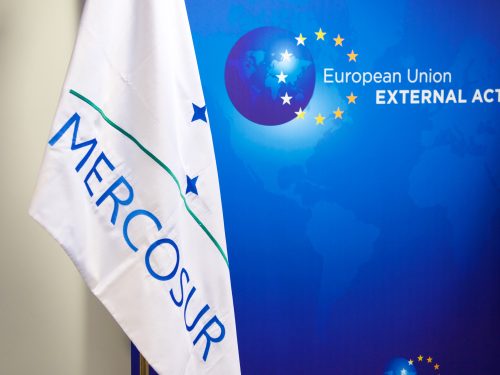News
Share on
"There is a need for facilitate young people's entry into the world of work. Italian industry has made itself availableout of a sense of responsibility to the country and to foster the employability of young people. Our companies welcome students in the school-to-work alternation, which, however, was literally dismantled by previous governments (it even changed its name, today 'Pcto', ed.), penalising technical institutes in particular'. Thus the Vice President for Human Capital, Giovanni Brugnoli, in an interview in Sole24Ore addressed some of the major issues concerning the world of education and the relationship with companies.
"Companies are the mainstay of the Its Academy, they actively participate in industrial doctorates, and Confindustria itself deploys many orientation initiatives, from Pmi day to Orientagiovani, from il Post in Fabbrica on Rtl 102.5 to today's event, hosted by Sole24Ore, "I Fuoriclasse della Scuola", just to give some examples". Brugnoli said, recalling that today in Milan, at the new headquarters of the 24 Ore Group, the award ceremony of the 'I Fuoriclasse della Scuola' project is being held, with which 'we award 67 scholarships, 6 more than last year. In five years, the project, which counts partners of the calibre of Feduf, Museo del Risparmio, Abi, and the collaboration of Liuc University, has donated almost EUR 600,000 and 294 scholarships to young talents. Yet another testimony of how companies can offer stimuli to young people so that they are able to grow and improve. These are the priorities, and it is therefore necessary to promote instruments that concretely help young people realise themselves in their work and thus experience active citizenship'.
For Brugnoli it is "the time to get a great public-private alliance off the ground for the future of our talents. We have a negative birth rate record, a mismatch of 46%, a youth unemployment rate over 20%, among the worst internationally. We cannot keep education and the productive world disconnected any longer. And on schools we need a long-term vision, policies to 2030-2040, as countries like China and the United States have done'.
In order to help young people realise themselves in work, it is important, according to the Vice President, "telling young people about the greatness of Italywhich, despite its difficulties, is the second industrial country in Europe, the seventh industrial power in the world, and needs their talent, and rewards it while it is still being trained'.
With regard to reforms, Brugnoli emphasised that the NRP allocates around 30 billion for schools, universities and research. For this "I ask Minister Giuseppe Valditara to speed up the implementation of the reform of the Its Academyas there are still 18 measures to be enacted. Higher institutes of technology are a passe-partout for youth employment and a breeding ground for innovation. Technical institutes must then be relaunchedalso in terms of greater digitalisation, 4.0, and connection with the territory. The industry is changing at an impressive speed, and if students want to see a state-of-the-art machine, they can only see it in a company'. The Vice President then launched an idea: "In the Its Academies, 60%, in some cases even more, of the teaching staff comes from the world of work. Why not also let teachers from companies into technical institutes to raise a new generation of experts, innovating teaching, starting with laboratory teaching? The technical institutes must also increase the number of school-to-work hours, so that industry can accompany and supplement the training of young people. Beware: we do not want to create 'company schools', but to make ourselves available to the world of training for the good of our young people and the country, finally creating a true public-private alliance'.
Brugnoli then pointed out the importance of orientationIt is a reform envisaged in the NRP and to be adopted by December, it has to be done seriously, and we need to start as early as middle school. We need more technicians, more graduates in scientific-technological disciplines (the so-called Stern subjects, ed) and for this it is crucial to help families and students make informed choices'. It is also crucial "innovating didacticstoday one in two 19-year-olds leaves school without basic skills in Italian, mathematics and English. Here we are staking the future of Italy Next to the other great emergency, denatality. In the next 10 years we will lose 1.4 million pupils, and we would need to review, for example, school building plans. In short,' Brugnoli concluded. We must get out of the logic of responses dictated by the emergency of the moment, and build a country project that, I repeat, sees school and business on the same side, finally allied'.




